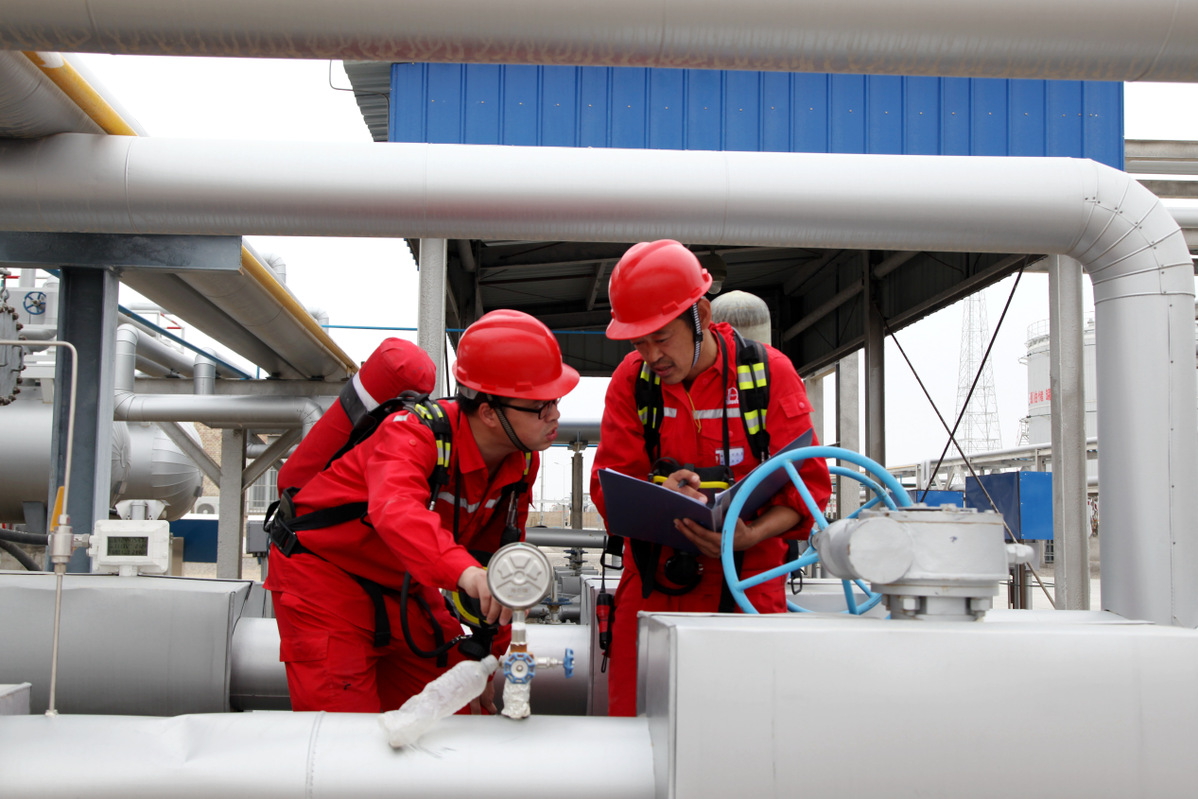3 oil giants look slick on robust H1


China's top three major oil and gas companies saw both their revenue and profit increase during the first half of this year on the back of an economic rebound from the COVID-19 pandemic and the rapid recovery of the petrochemical products market in the country.
China National Petroleum Corp, the country's largest oil and gas company, reported a net profit of 53.04 billion yuan ($8.18 billion) during the first six months of this year, compared to a net loss of 29.98 billion yuan during the same period last year. First-half revenue was up 29 percent at 1.197 trillion yuan, it said.
China Petroleum and Chemical Corp, known as Sinopec and the world's largest refiner by volume, reported 39.15 billion yuan in net profit, compared to 23 billion yuan in loss during January-June last year. Its revenue rose 22.1 percent to 1.26 trillion yuan, following a recovery in global oil prices and on robust demand for fuel and petrochemical products.
China National Offshore Oil Corp, China's top offshore oil and gas driller, said its first-half net profit more than tripled from a low base last year, reaching 33.33 billion yuan, up 221 percent from a year ago, the highest since the first half of 2014. Revenue jumped 48 percent from a year earlier to 110.23 billion yuan, it said.
Analysts attributed the growth in profit and revenue to the rebound in demand brought by the global economic recovery, the rising average price of international crude oil and the steady growth of China's economy.
The country's oil and gas companies have been operating steadily with operational quality and efficiency significantly improved during the first half of this year, helping the companies achieve ideal interim performance, said Luo Zuoxian, head of intelligence and research at the Sinopec Economics and Development Research Institute.
"The fuel demand in the country has picked up with transportation restriction gradually easing, while the State-owned refineries have also ramped up production; and demand for refined oil products is also increasing," he said.
"The government's goal of achieving carbon neutrality by 2060 also encourages the consumption of the natural gas, with a batch of major oil and gas discoveries announced during the first six months of this year."
Luo said the country's three major oil and gas players have also accelerated exploration investment intensity during the past few years with a series of major breakthroughs. Their mastery of oil and gas exploration technology is also on the rise, which is believed to further inject momentum into the reform of the country's future oil and gas systems and mechanisms, he said.
Li Ziyue, an analyst with BloombergNEF, agreed, saying the robust gas output growth of China's national oil giants and further plans to ramp up production show these companies' commitment to speed up energy transition by pivoting to gas.
"Steadily-growing natural gas output is also critical to ensure energy security as gas demand surges," she said.
The three major oil and gas companies are also shifting their focus from fossil fuel energy to the new energy business against the backdrop of China's aims to achieve carbon neutrality by 2060 and peak carbon emissions by 2030.
They pledged to further develop new energy, with the green and low-carbon transformation already achieving positive progress.
While CNPC aims to continuously push forward the construction of distributed photovoltaic gas stations, and charging and battery swap stations, Sinopec assured it will accelerate the building of the distributed photovoltaic power stations and step up construction of hydrogen refueling stations.
For its part, CNOOC said it has big plans in wind and solar power. It aims to invest 5 to 10 percent of its total investment in the solar and wind businesses each year to make sure the wind and solar sectors achieving major breakthroughs during the 14th Five-Year Plan period (2021-25), said Wang Dongjin, chairman of CNOOC.
The three energy giants also pledged to step up the pursuit of transition in their operations by sharpening focus on non-fuel retail business while boosting overall revenue margins.





































